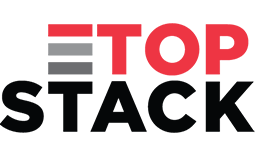4 Important Tips for Passive Job Seekers

Here’s a tip for everyone working today: Even if you love your job, you should be prepared to leave it. While that may seem disloyal, in fact, it’s good advice. That’s because markets can shift dramatically leaving employers facing downsizing, which means your job may be on the line. We also know employers can act erratically, so the truth is no job is ever really safe. Many of us have lived through a down economy, so you should always have your resume updated.
Around 73 percent of employees today are passive job candidates, meaning they aren’t actively looking for a new job, but they’re open to it. Here are four of the best tips to stay prepared for the next big thing.
Update Your LinkedIn Profile
LinkedIn is one of the resources recruiters use to find job candidates. Take the time now to update your profile. Consider this online presence as your resume, so make it highly professional and up to date, by listing your skills, education and certifications. It’s also a good idea to start to connect with people and their networks to build your own. Try joining a few LinkedIn groups, which are the online version of a MeetUp. Then, write a few recommendations for your colleagues and ask them to recommend you.
Improve Your Networking Skills
While today’s unemployment market heavily favors the job seeker (there aren’t enough employees to go around), it doesn’t mean you shouldn’t force yourself to continue to make networking connections. The bigger your network, the better your chances of finding a job, especially if the job transition is unexpected. Try going once a month to a networking event in your field. Also, post status reports on social networking sites to let people know you’re still around. Sharing interesting job-related articles is just one way to stay in front of your social network.
Check Out Companies
Instead of mindlessly surfing the internet this weekend, surf the internet with a purpose. Start to scope out the kinds of employers you’d be interested in working for, if push came to shove. Here’s another tip: Check out recruiting firms. A recruiter is the best resource for finding the best jobs in today’s hot market. Recruiting firms work directly with hiring managers to fill roles, and many times they find out about positions even before they are posted. So, even though you are “passive” in your job search, you can prepare a list of top companies you’d like to work for and recruiters can help you get your foot in the door.
Update Your Resume
We talked in a prior article about the importance of keywords; updating your resume now and keeping it ready will speed your time to market, should something happen at your current job. Each time you change jobs, get promoted or take an online class, your resume should be updated. You can even have a cover letter template ready to go – just in case.
At Top Stack, we know life changes constantly. Contact one of our recruiters to begin to pave the way for your next job search.










